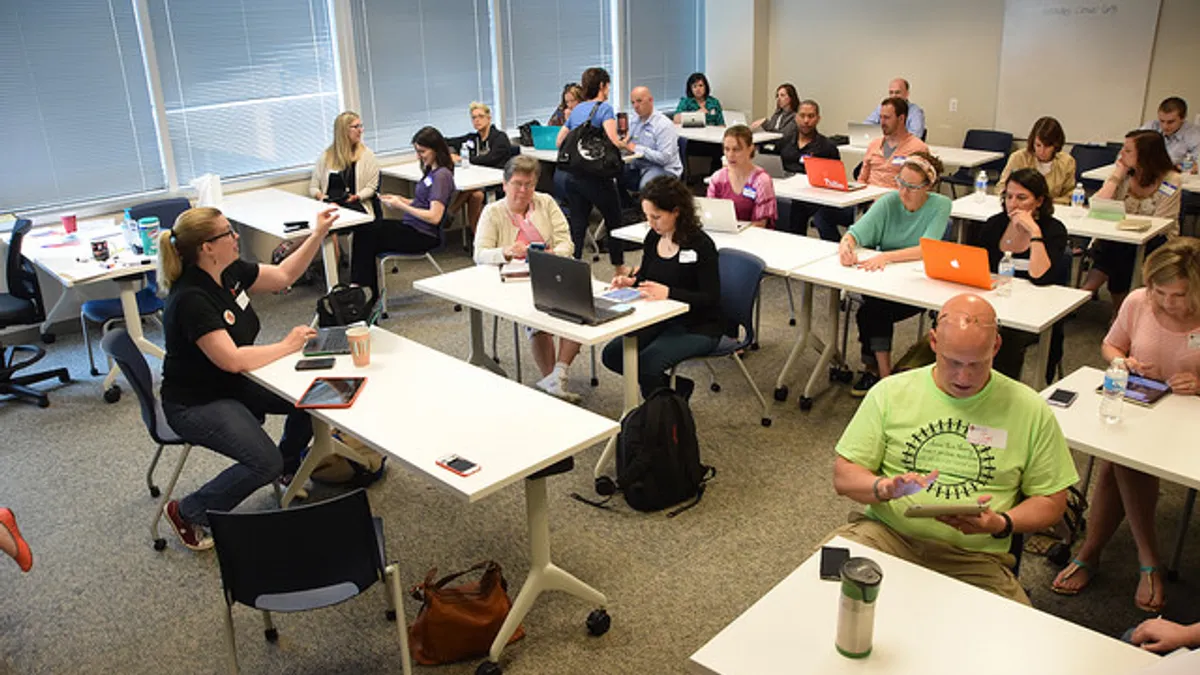Dive Brief:
- A variety of California school employees — from bus drivers and secretaries to yard supervisors and instructional assistants — are getting state grants to earn their teaching credentials, The Sacramento Bee reports.
- The California Classified School Employee Teacher Credentialing Program aims to address the dearth of teachers in the state, especially in special education.
- The grants pay $4,000 annually per participant for up to five years to help them complete a bachelor’s degree and earn a teaching credential, with participants taking classes in the evening as a group, and the first cohort is expected to be fully credentialed by 2020.
Dive Insight:
Almost every state has a shortage of special education teachers, specialized instructional support personnel, or both, according to the National Coalition on Personnel Shortages in Special Education and Related Services. The organization lists insufficient funding for programs to lure new graduates and lack of support for their professional training as reasons.
Recruiting paraprofessionals as special-education teachers is a method increasingly relied upon by district leaders to meet the growing need. Grants obviously ease a main hurdle for those prospective teachers. But aside from the cost of tuition, the expense of textbooks and fees for the licensing tests and the accompanying test-prep instruction are barriers, as well.
Plus, getting teaching credentials can be logistically time-consuming and overwhelming. A valuable type of support administrators can extend is coaching paras through all the red tape. For aspiring special education teachers, the crucial individualized education program process can be particularly daunting. Training and support specific to IEPs can go a long way to easing the pathway to certification, as can district-provided training in positive behavior interventions and supports.
Since instructional support staff usually live in the community, transitioning those in assistant roles to lead teachers comes with a unique benefit: A more diverse and bilingual group of teachers, who likely have existing relationships with their students to build on. Also, many paraprofessionals already work with special education students, so they're an obvious pool from which to seek special education teachers.
But they also face unique difficulties that teachers who took the traditional route often don't. They may not command respect from colleagues who are used to thinking of them as support staff, and they may already be parents, thus juggling childcare and other responsibilities. School leaders who anticipate such challenges and are prepared with supports to address them will be most successful in turning paras into fulfilled lead instructors they're able to retain for the long-term.












